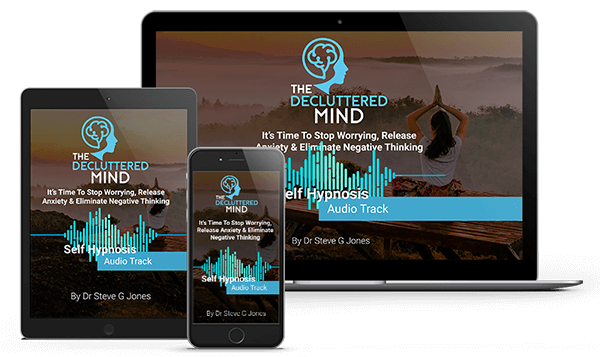
Clutter in the mind isn’t just about feeling busy or overwhelmed. It’s about having too many thoughts, worries, or tasks bouncing around your head like an endless ping-pong match. This mental chaos might not be as visible as an untidy room, but it can have a significant impact on how you feel and function daily.
When your mind’s overloaded, you might catch yourself stressing over minor things, forgetting important stuff, or struggling to stay focused. These symptoms aren’t just random; they’re almost like flashing neon signs telling you something’s gotta change upstairs.
To get a grip on how clutter’s weighing you down, you’ll need to recognize how it shows up in your life. Could be constant racing thoughts, a never-ending to-do list in your head, or feeling generally anxious. These are usual suspects when it comes to mental overload.
Not tackling clutter can mess with your well-being big time. It’s not just about being stressed. We’re talking poor sleep, strained relationships, and messed up work-life balance. Getting this in check isn’t just a good idea, it’s essential for your health.
Practical Strategies to Declutter Your Mind
Mindfulness and meditation are game-changers when it comes to clearing out mental clutter. Getting into the habit of just focusing on the here and now can seriously calm a stormy brain. It doesn’t take hours of sitting cross-legged, even a few minutes of deep breathing or chilling in silence can work wonders.
Another great tactic is mastering the art of prioritization. Ever heard of that saying, “not all tasks are created equal”? Well, it’s true. Figuring out what’s really worth your time and brain power helps free up mental real estate. Making lists, setting deadlines, or just being okay with cutting out the non-essentials can change your daily grind significantly.
Let’s not underestimate how our surroundings play a part in mental clutter. An organized physical space often leads to an organized mental space. Spend some time tidying up your environment, whether it’s your desk, your car, or even your phone’s home screen. It’s like giving your brain a little R&R without having to lift a napkin.
Time management isn’t some boring office buzzword, it’s a key player in keeping your head clear. When you plan your day or week, you’re laying out a path that prevents last-minute freak-outs and mental overload. Use apps, planners, or good old sticky notes to help you stay on track and feel in control.
Incorporating Healthy Habits for Long-term Mental Freedom
Physical exercise isn’t just about keeping fit; it’s a powerhouse for the brain too. Simply moving your body regularly releases endorphins, the happy chemical that naturally fights stress and helps your mind stay sharp. Even a daily walk or a quick workout video can make a big difference.
Fueling your brain with the right foods is another smart move. Good nutrition impacts mental clarity, so munching on brain-friendly foods like leafy greens, nuts, and fish can boost focus and keep those brain gears running smoothly. It’s like feeding high-quality fuel to a car engine.
Sleep isn’t just rest; it reboot your brain. Quality sleep boosts memory, mood, and clears out heavy thoughts that might clog your mind during the day. Setting a regular sleep routine, avoiding screens before bed, or drinking calming teas are good practices to get better shut-eye.
Embracing these habits may not show immediate results, but stick with them! It’s about building a routine that nurtures your mental health over time. Start small, and make these habits part of your lifestyle to enjoy continued mental freedom.
Personalized Solutions: Tailoring Techniques to Fit Your Life
One-size-fits-all doesn’t work when it comes to the mind. Finding what triggers your stress and learning to manage these can be liberating. Maybe it’s work deadlines, social pressures, or just juggling too many roles. Pinpointing these triggers can help you tackle them effectively.
Talking to someone who gets it—whether a therapist or a friend—can really lighten the load. Sometimes, speaking out your thoughts or worries helps clear mental clutter. Professional guidance offers new perspectives and strategies tailored to your needs.
Crafting a mental health plan isn’t a luxury, it’s self-care. Tailor a strategy that fits into your lifestyle, incorporating techniques that resonate with you. Whether it’s journaling, setting boundaries, or taking up a hobby, make sure your plan serves you and avoids adding extra pressure.
Life’s unpredictable, and sometimes we hit rough patches. Having these personalized tools helps you stay grounded amidst chaos. There’s power in knowing you have a toolkit ready whenever your mind gets messy.

Leave a Reply